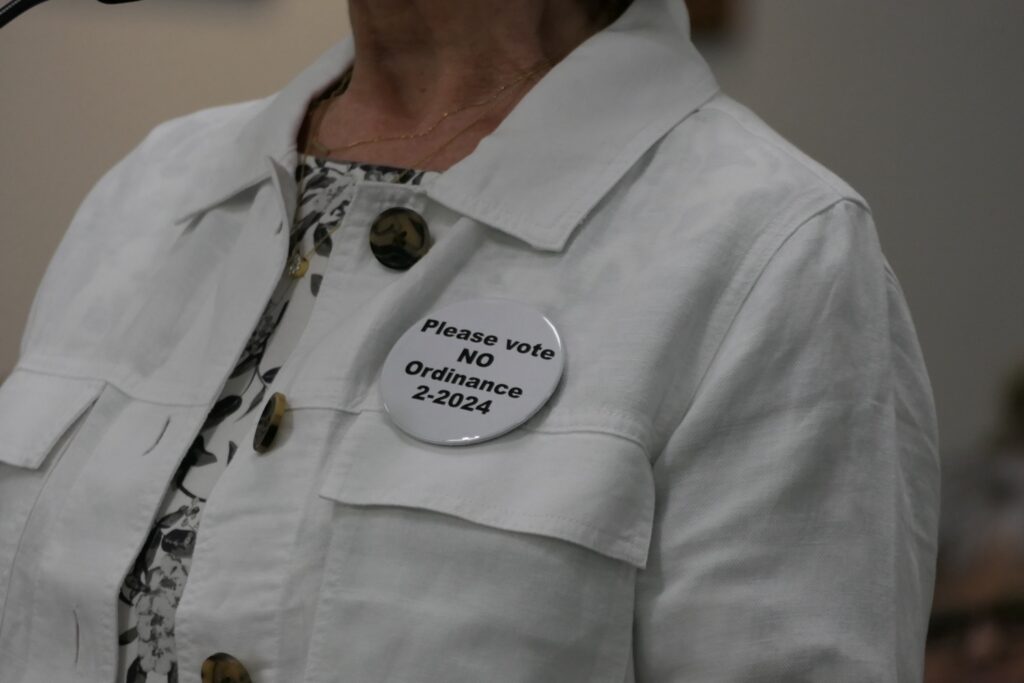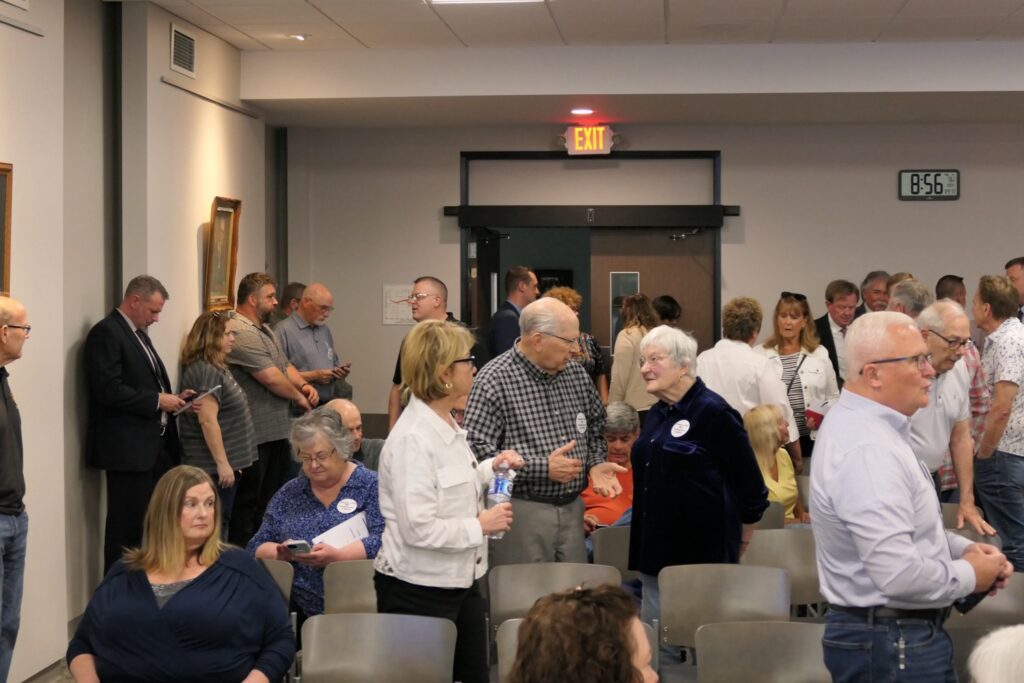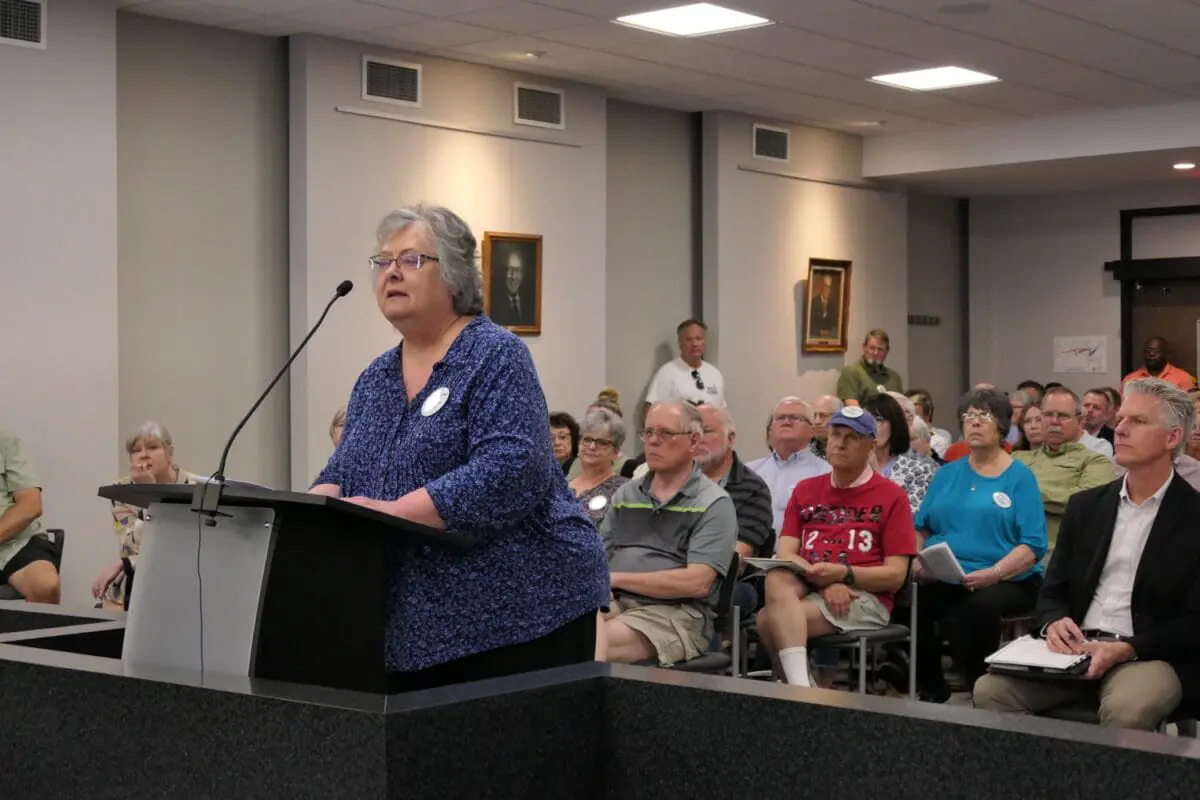Richmond Common Council kills housing development plan 6-3
RICHMOND, Ind. (Western Wayne News) — Cheers erupted from the audience after Richmond’s Common Council voted Monday night 6-3 against a proposed rezoning that was needed for a planned housing development to move forward.
For close to three hours, attendees and council members spoke passionately about the issues raised by the Smith Hill Planned Unit Development.
Those in favor of the project implored council members for help in creating new and better housing options for workers looking to locate in the area, describing the proposal as an essential “piece of the puzzle” to build and shape the community for the better.
Those opposed were careful to say they are not against developing new housing options in general, but cited fears of traffic, drainage, sewer capacity and density issues along with questions about a proposed child care facility as reasons why this particular neighborhood should not be built. They brought more questions than answers: What if the demand isn’t actually there? What if property values go down? Why not spend funds being considered for the project on existing housing revitalization?

Council considered the zoning request after the Richmond Advisory Plan Commission voted 7-0 to recommend approval of the rezoning.
The proposal from 11th Street Development includes 178 single-family homes in four types and up to 220 apartments on 80 acres east of South 37th Street and South of Backmeyer Road. The developer needed the land zoned medium-density, single-family residential rezoned to a mix of zoning categories to accommodate the different plot and home sizes and for the apartments.
Council members Doug Goss, Bill Engle and Gary Turner voted in favor while members Lucinda Wright, Larry Parker, Anne Taylor, Jane Bumbalough, Justin Burkhardt and Jerry Purcell voted against.
Neighbors have collaborated to oppose the development. More than 50 people attended each plan commission meeting that involved the development, and a letter urging Common Council members to deny the zoning is signed “South 37th Street Neighborhoods.”
Susan Yaeger, who lives on Stonecreek Road north of Backmeyer, said she is expressly interested in the sewer infrastructure.
During March 2023, stormwater and sewer water backed up into her home, saturating the living room, two bedrooms, kitchen and dining room. Three months of repairs involved new carpet, replacing the lower two feet of drywall in the impacted rooms and painting. The work cost her $14,000.
“All I can think if you add 250 apartments and 178 houses is that all of their sewer water is going to end up in my living room again,” Yaeger said.
Because of ongoing flooding and drainage problems, the city contracted Lochmueller Group to study drainage and sewer system issues in the Backmeyer Trace subdivision where Yaeger lives. The December 2022 study found that the drainage system and storm sewer system are undersized. Lochmueller Group proposed solutions ranging in cost from about $400,000 to about $550,000.
Gordon Moore, the county surveyor, told plan commission members that the Scott drainage ditch that runs along South 37th Street and the Quigg ditch southeast of the proposed development would adequately handle drainage from the project, which plans eight retention ponds to regulate flow into the ditches. But the question of overall capacity was still in debate during Monday’s meeting as council members Bill Engle, Larry Parker and Gary Turner communicated conflicting understandings of what was possible.
Yaeger contends the city needs to address drainage and sewer issues rather than permit growth that further strains the undersized systems.
“Fix the problems you have first, not build more on an already inadequate system,” Yaeger said.

Project opponent Carol Green agreed. “Don’t turn over one shovel of dirt until these people have all their issues settled,” she said during the public hearing.
Even during last week’s rains, Yaeger kept a close eye on flooding around her, wondering if water will again back up into her home. It’s like that for her every time it rains significantly.
“It’s not the way you should have to live,” said Yaeger, who added that city workers will check the maintenance hole near her home when she calls.
Yaeger said she thinks the city should help faithful residents already living in the area, a sentiment several speakers shared Monday night. Addressing a local housing need is a flashy project, she said, attractive to city officials, because fixing the sewer system is not flashy.
“They’re always trying to lure people here, but if they made people who live here happy, we’d be the best advocates, jumping up and down to say how great Richmond is and we want them to come here,” Yaeger said.
The majority of council members appeared to agree.
Despite the pleas of representatives from area employers, universities and economic development groups saying that the council should resist “fear of change” to give the project a chance, in the end the unanswered concerns were too many to allow the project to advance as proposed. For now, the question of how Richmond will address its growing housing needs remains.
Mike Emery contributed to this story. This story originally appeared in Western Wayne News.
